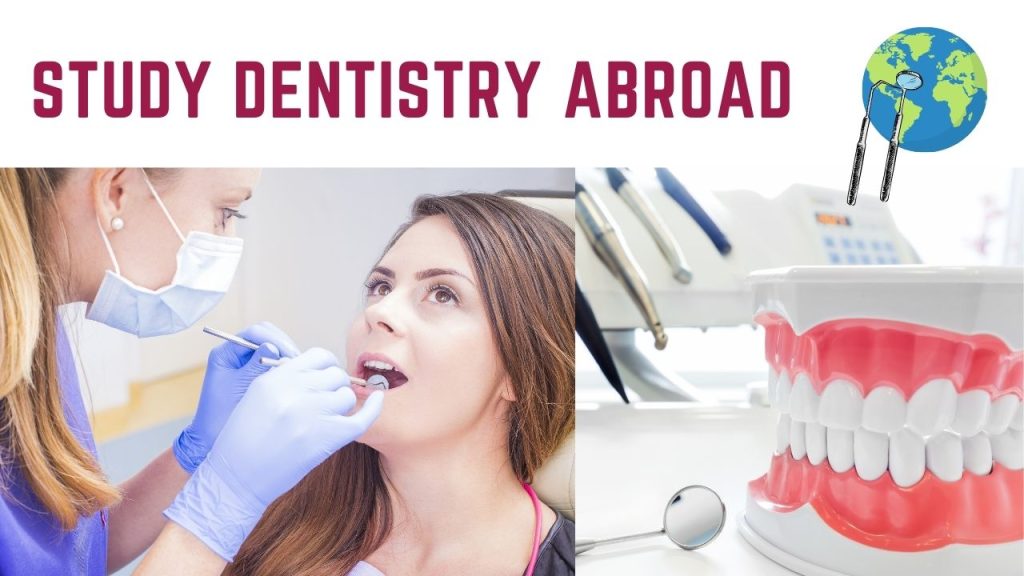
Study Dentistry Abroad
Study dentistry in top European universities offering English-taught programs, affordable tuition, and globally recognized degrees. Gain hands-on clinical experience in modern facilities, with opportunities to practice dentistry worldwide.
Study Dentistry Abroad
Studying dentistry abroad has become an increasingly popular choice for students aspiring to become dental professionals. With numerous universities offering high-quality dental programs at competitive tuition rates, pursuing a dentistry degree overseas can provide not only excellent education but also a culturally enriching experience. Countries across Europe, Asia, and beyond offer world-class dental schools that recognize the growing demand for skilled dentists worldwide.
✅ Top Countries to Study Dentistry Abroad
Several countries have established themselves as prime destinations for studying dentistry. Some of the most popular include:
- Hungary: Known for its prestigious dental universities and affordable tuition, Hungary is one of the top choices for students seeking quality dental education.
- Romania: With its well-regarded dental schools, Romania offers low-cost tuition fees and internationally recognized degrees.
- Poland: Offering both affordable education and a wide range of dental programs in English, Poland is a popular choice among international students.
- Cyprus: Cyprus features universities that offer dental degrees in English, combining modern education with a relaxed Mediterranean lifestyle.
- Latvia: Known for its affordable tuition and reputable dental programs, Latvia has emerged as a competitive choice for students.
✅ Top European Dental Schools Offering Programs in English
Many European universities offer English-taught dentistry programs that cater to international students. Some of the most well-known dental schools in Europe include:
- European University Cyprus’s School of Medicine (Cyprus)
- The University of Zagreb (Croatia)
- Sapienza University in Rome (Italy)
- Charles University in Prague (Czech Republic)
- Masaryk University in Brno (Czech Republic)
- Pilsen University in the Czech Republic
- Palacky University in Olomouc (Czech Republic)
- Odessa National Medical University (Ukraine)
- Lviv National Medical University (Ukraine)
- Debrecen University (Hungary)
- Semmelweis University in Budapest (Hungary)
- Kaunas University of Medicine (Lithuania)
- Szeged University in Hungary
- Pécs University in Hungary
- Comenius University in Slovakia
- Pavol Jozef Šafárik University in Slovakia
- Poznan University of Medical Sciences (Poland)
- University of Medicine & Pharmacy in Cluj Napoca (Romania)
These universities offer high-quality education with internationally recognized degrees, preparing students for a career in dentistry.
✅ Globally Recognized Dental Degrees
One of the most significant advantages of studying dentistry abroad is the opportunity to earn a globally recognized dental degree. Universities across Europe and other regions follow international standards of education, ensuring that their graduates can practice dentistry in their home countries or abroad. Countries like Hungary, Romania, and Poland have dental programs accredited by EU standards, opening doors to practicing in various countries around the world.
✅ English-Taught Programs
For non-native students, many universities offering dentistry degrees abroad provide English-taught programs, eliminating the language barrier and ensuring that students from various countries can benefit from high-quality education. Countries like Hungary, Poland, and Cyprus are particularly well-known for offering dental programs in English, making them ideal for international students.
✅ Affordable Tuition and Living Costs
Compared to many Western countries, the cost of studying dentistry abroad is significantly lower. Tuition fees in countries like Hungary, Romania, and Poland can range from €5,000 to €15,000 per year, which is often much more affordable than dental programs in the US, UK, or Western Europe. Additionally, the cost of living in these countries is also lower, making them ideal for students looking for a cost-effective education.
✅ Hands-On Clinical Training
Dental schools abroad offer robust clinical training, providing students with practical experience in modern dental clinics and hospitals. Students often have the opportunity to treat patients under the supervision of experienced faculty members, honing their skills in a real-world setting. This hands-on experience is crucial for developing the practical skills needed to succeed as a dentist.
Structure of Dentistry Programs
Degree: Bachelor’s or Master’s in Dentistry (DMD or BDS)
Duration: Typically 5-6 years
Curriculum: Courses in oral biology, anatomy, pathology, dental surgery, restorative dentistry, and clinical dentistry.
Clinical Training: Practical experience through clinical rotations in university-affiliated dental clinics and hospitals.
Admission Requirements
- High school diploma with strong grades in Biology, Chemistry, and Physics
- Proof of English proficiency (IELTS/TOEFL)
- Entrance exams (may include Biology and Chemistry)
- Interview (may be required for some universities)
Career Opportunities
Graduates with a dental degree from an accredited foreign university can work as general dentists, specialists, orthodontists, or dental surgeons in hospitals, private practices, or research institutions. The global recognition of these degrees also provides opportunities for international practice and further specialization.
Conclusion
Studying dentistry abroad offers many benefits, including affordable tuition, English-taught programs, and globally recognized degrees. With excellent clinical training and the chance to study in some of the most beautiful and culturally rich countries, pursuing a dental degree abroad can be an investment in both your education and future career. Whether you choose Hungary, Romania, or another top destination, studying dentistry abroad provides a world-class education and broadens your professional opportunities.





